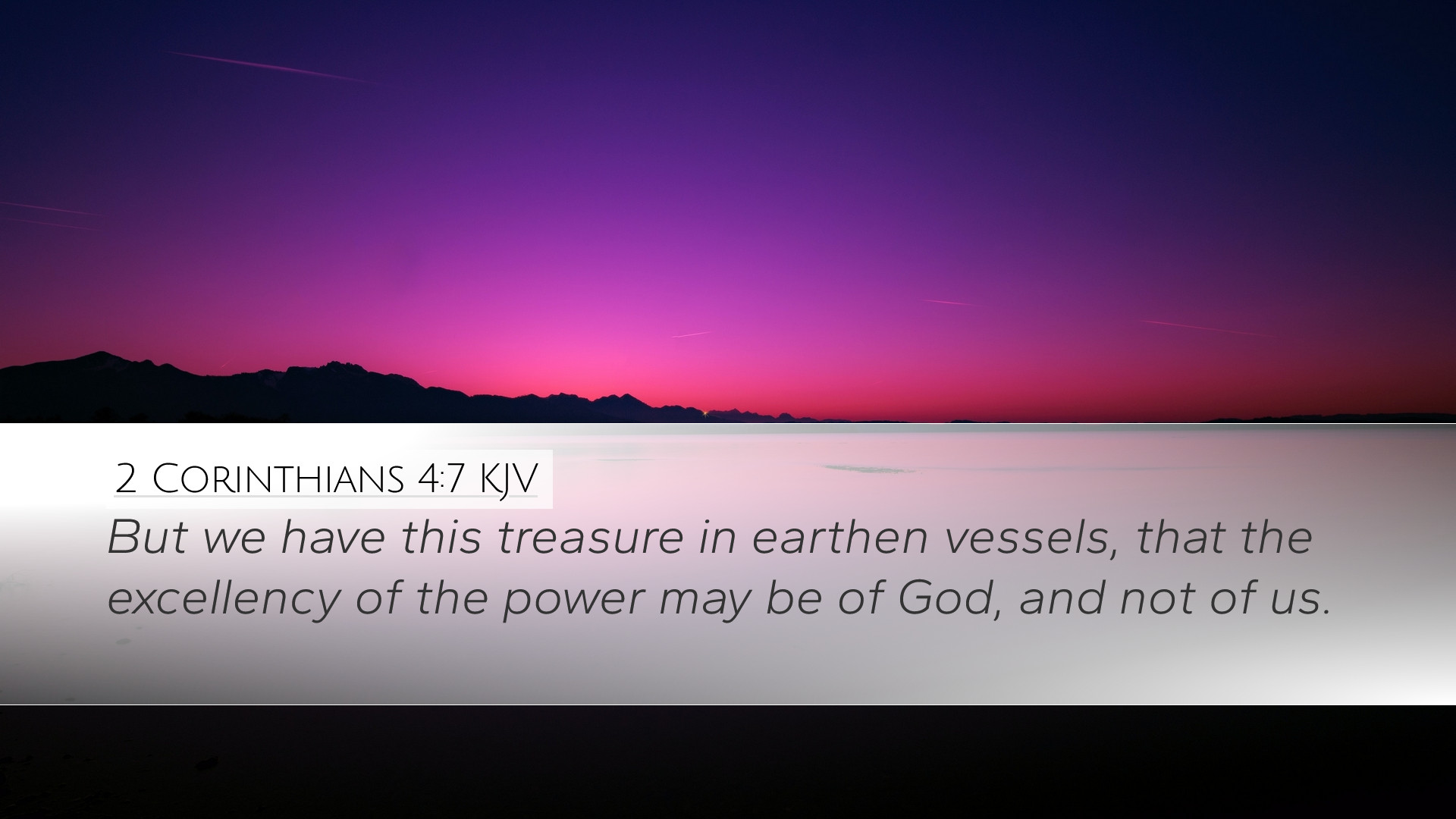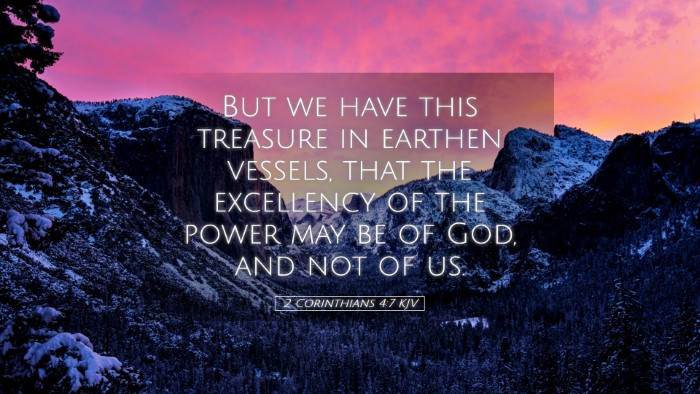Old Testament
Genesis Exodus Leviticus Numbers Deuteronomy Joshua Judges Ruth 1 Samuel 2 Samuel 1 Kings 2 Kings 1 Chronicles 2 Chronicles Ezra Nehemiah Esther Job Psalms Proverbs Ecclesiastes Song of Solomon Isaiah Jeremiah Lamentations Ezekiel Daniel Hosea Joel Amos Obadiah Jonah Micah Nahum Habakkuk Zephaniah Haggai Zechariah MalachiVerse
2 Corinthians 4:1 2 Corinthians 4:2 2 Corinthians 4:3 2 Corinthians 4:4 2 Corinthians 4:5 2 Corinthians 4:6 2 Corinthians 4:7 2 Corinthians 4:8 2 Corinthians 4:9 2 Corinthians 4:10 2 Corinthians 4:11 2 Corinthians 4:12 2 Corinthians 4:13 2 Corinthians 4:14 2 Corinthians 4:15 2 Corinthians 4:16 2 Corinthians 4:17 2 Corinthians 4:18

